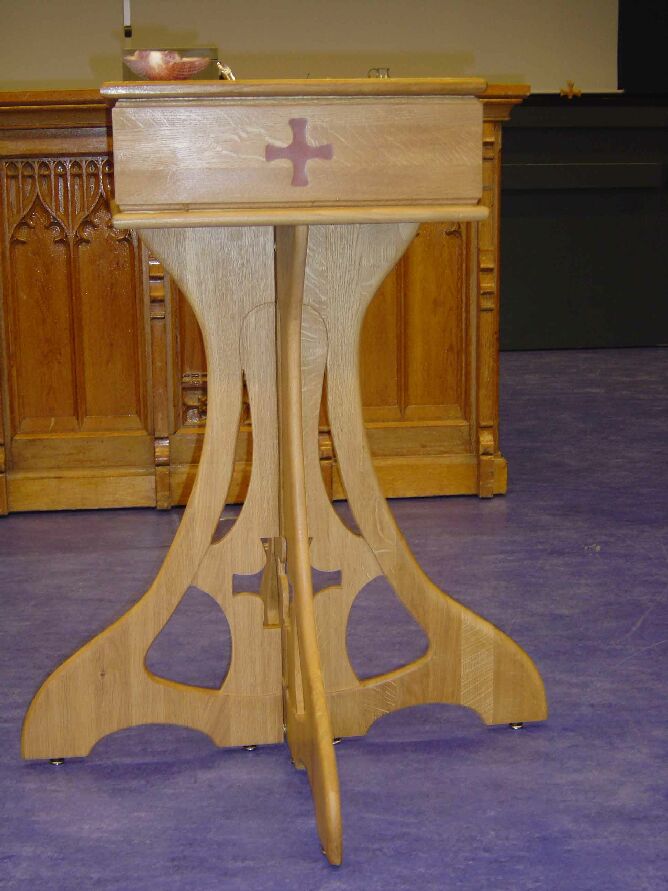Baptism and confirmation
|
What is baptism?
Baptism is a sacrament: a visible sign of God's love. It is also a response to that love - a desire and a commitment to respond to God's call to follow the example of Jesus Christ. Moreover, it is a celebration, a time to come together with family and friends; remembering that you are loved by God, are part of a wider community and have a place with God's people. If you are mature enough to make your own decisions and you've decided you'd like to be baptized, you'll have a baptism service that is designed for adults. You may have been going to church for a while and want to make a more definite commitment in terms of your Christian faith. For adults and young people, baptism usually takes place shortly before, or at the same time, as confirmation (see below).
Infant baptism (christening)
When children are baptised, parents thank God for his gift of life and make a decision to start their child on a journey of faith, and godparents promise help and support. The church also promises to welcome the child and to pray for the family. For your child, being baptised marks the start of a lifelong journey of faith as part of the local and worldwide Christian family. Some parents might want to celebrate the gift of a child in a different way without the commitment that baptism involves. In that case, a thanksgiving service offers the opportunity to give thanks for the birth or adoption of a child, to pray together for family life, and to bless the child. It can take place in church with the congregation, or with just family and friends gathered, or elsewhere such as home, or even in hospital. A thanksgiving service is not the same as baptism: there are no promises to make about the Christian faith. And you can still go on to have a baptism service at a later date. |
When does baptism take place?
You can have your baby baptised as part of the main Sunday service. If you want to have the christening at a different church, for example, where you grew up or where you were married, you will need to talk to the vicar at that church.
You can have your baby baptised as part of the main Sunday service. If you want to have the christening at a different church, for example, where you grew up or where you were married, you will need to talk to the vicar at that church.
How does baptism take place?
At your baby's christening, water will be blessed and poured on the baby's head – this is the baptism of your baby (the word 'baptism' means 'to be immersed in water'). The baby will be signed with the cross and a special oil may be used for this. A candle or other gift from the church may be given. Godparents and parents will make promises on behalf of the baby, and prayers will be offered for the baby and the family. You may also be able to choose some of the readings and hymns – please ask if you have any special requests.
At your baby's christening, water will be blessed and poured on the baby's head – this is the baptism of your baby (the word 'baptism' means 'to be immersed in water'). The baby will be signed with the cross and a special oil may be used for this. A candle or other gift from the church may be given. Godparents and parents will make promises on behalf of the baby, and prayers will be offered for the baby and the family. You may also be able to choose some of the readings and hymns – please ask if you have any special requests.
What are godparents?
Godparents are some of the most important people at the Christening. They are not the people who will care for your child should anything happen to you. Rather, they should be people who will be there for your child and help them think about the bigger questions in life - questions of love, hope and faith. Every child should have at least three godparents, two of the same sex and at least one of the opposite sex. Parents may be godparents for their own children, providing they have at least one other godparent. Godparents must be baptised themselves and old enough to make some serious promises on behalf of the child.
Godparents are some of the most important people at the Christening. They are not the people who will care for your child should anything happen to you. Rather, they should be people who will be there for your child and help them think about the bigger questions in life - questions of love, hope and faith. Every child should have at least three godparents, two of the same sex and at least one of the opposite sex. Parents may be godparents for their own children, providing they have at least one other godparent. Godparents must be baptised themselves and old enough to make some serious promises on behalf of the child.
What is confirmation?
Confirmation marks the point in the Christian journey at which you affirm for yourself the faith into which you have been baptised and your intention to live a life of committed discipleship. This affirmation is confirmed through prayer and the laying on of hands by the confirming bishop. The Church also asks God to give you power through the Holy Spirit to enable you to live in the way of Jesus.
Confirmation marks the point in the Christian journey at which you affirm for yourself the faith into which you have been baptised and your intention to live a life of committed discipleship. This affirmation is confirmed through prayer and the laying on of hands by the confirming bishop. The Church also asks God to give you power through the Holy Spirit to enable you to live in the way of Jesus.
There is no right age for a person to be confirmed. Anyone may be confirmed who has been baptised, if they are old enough to answer responsibly for themselves. As a general rule anyone who is over 10 years old and can answer for themselves could be ready for confirmation but the right time for you might be at any age.



